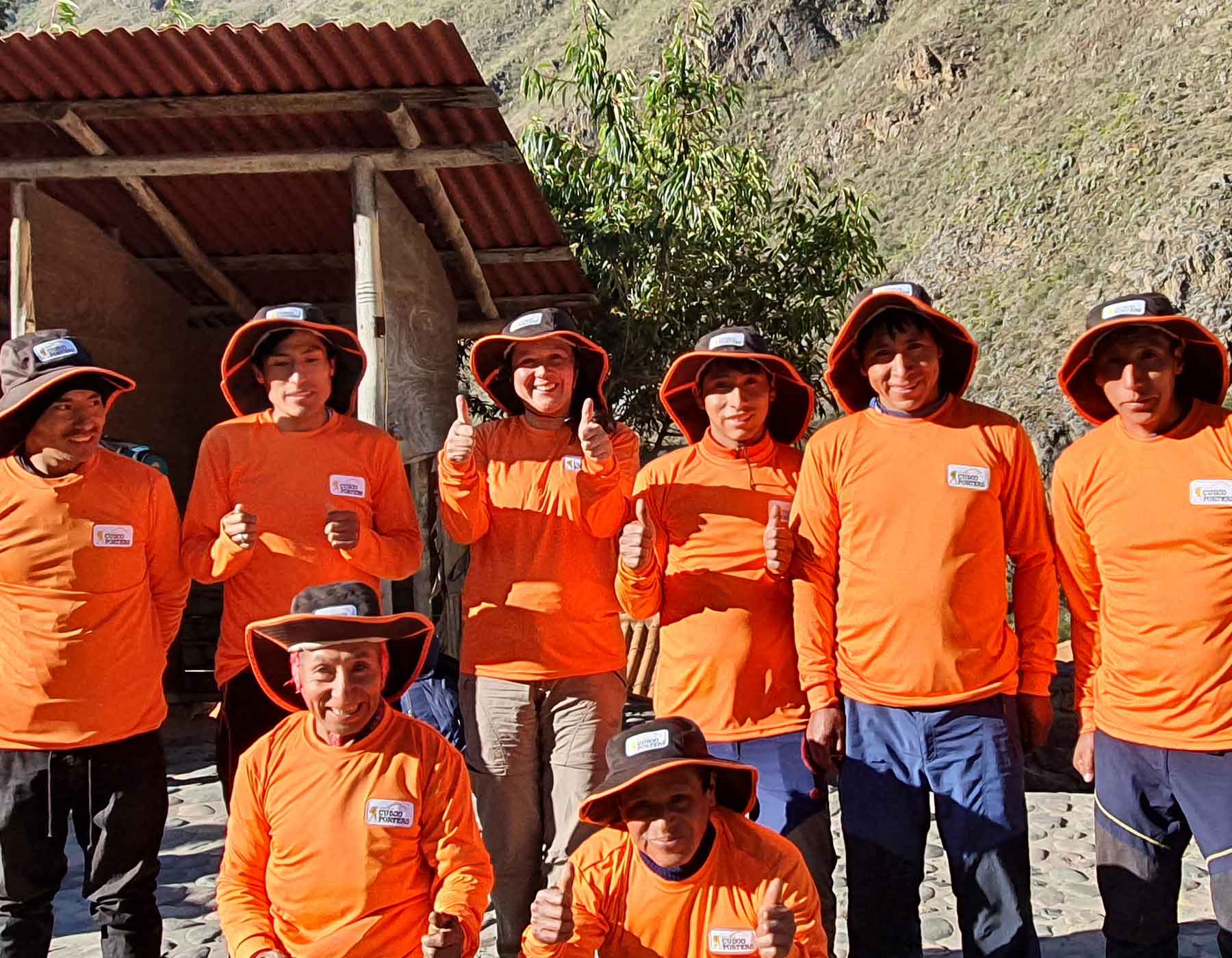How to Hike the Inca Trail Responsibly
Machu Picchu is one of the most extraordinary places in the world. More than just a beautiful stone city, it represents the perfect harmony between humanity and nature. Machu Picchu proves that human hands can achieve greatness without creating conflict with the environment. Preserving it is not only the duty of Peruvian authorities but also the responsibility of every traveler who visits this sacred Inca site.
To speak of Responsible Tourism Tips is to explore the many ways we can minimize the negative impacts of tourism — such as ecosystem damage, loss of native flora and fauna, and cultural alienation.
Knowing how to travel responsibly along the Inca Trail allows you to fully enjoy the experience while helping to protect this priceless heritage.
Responsible Tourism Tips
Take Care of the Environment on the Inca Trail
Caring for the environment means enjoying the trail respectfully. Do not leave trash behind, damage ancient walls, or start fires — these actions can cause permanent harm to the stones and structures.
Avoid picking wild plants, especially orchids, since collecting them endangers native flora. Respect the landscape and leave everything as you found it.
Learn About Local People and Their Customs
In Peru, Spanish is the main language, but many Andean people are bilingual and also speak Quechua, their ancestral language. Learning a few words in Quechua or Spanish can help you communicate better and make your experience more meaningful.
Remember, when you travel, you are a guest — so act as you would in someone else’s home. Respect local traditions, ask before taking photos, and avoid interrupting religious services or entering private areas without permission.
If you wish to make donations, such as medicines or sweets, consult your guide first to ensure they are appropriate and respectful for the community.
Support the Local Economy
Whenever possible, spend your money in local communities to help strengthen their economy. Buying local crafts, food, or services benefits families who rely on tourism for their livelihood.
Supporting local businesses also shows that sustainable tourism and regulated permit systems can coexist successfully — creating a healthier and fairer tourism industry for everyone.
Avoid the rainy season
The Inca Trail is hard during the rainy season, and it is better to avoid it during this season, since this is the worst time for erosion. If it rains and you have a lot to carry, it is worth considering hiring an extra porter, to help you with your personal luggage. Not only will you be creating more tourism income for people from local communities, but you will be practicing responsible hiking, as the road becomes very slippery, you will have more control if you have less weight to carry.
Use the correct trekking poles
Trekking poles are useful, but only those with rubber tips are permitted on the Inca Trail to protect the stones and the terrain. Remember that poles are not allowed inside the Machu Picchu citadel itself.
Do not carry plastic bottles
Try as much as possible to avoid plastic water bottles. Water purification tablets and a bottle that you can refill are your best option. For the walk, bring cleaning supplies such as soaps, detergents and biodegradable bags, as well as ecological sunscreens.
Leave No Trace
The Inca Trail has remained pristine for hundreds of years — let’s keep it that way. Avoid leaving behind cigarette butts, bottles, or any waste.
All our partner operators use clean fuel (gas) since kerosene and open fires are prohibited due to environmental risks. Please respect these rules and help preserve the trail for future generations.
Hike with Responsible Partners
Our long experience has taught us to understand the potential impacts of tourism on the environment and local communities. Hiking the Inca Trail with the Responsible People Foundation and our partner adventure travel companies is a truly responsible choice.
We are committed to employing locals from nearby communities and ensuring they receive fair wages. We uphold a strict policy of respect and ethics for all porters. Beyond economic benefits, our goal is to create real human connections — sharing culture, stories, and traditions within a framework of respect.
If a tour seems unusually cheap, remember that the cost is often borne by the porters who carry your belongings. Our porters are paid above the legal minimum, and you are encouraged to engage with them — talk, share, and sing together as equals.
Responsible People also promotes environmental conservation by training local communities to protect their lands and resources. We operate with full awareness that our work takes place in sacred, intangible areas, natural reserves, and UNESCO World Heritage sites.
You may only walk the Inca Trail once in your lifetime — make it count.
Travel responsibly, respect nature, and let your journey leave only footprints of gratitude and care.
